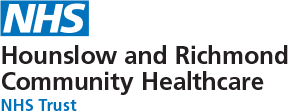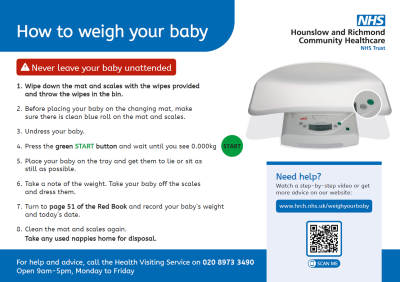There are a number of self-weigh stations in Hounslow which allow to check your baby's weight to see if they are healthy and feeding well.
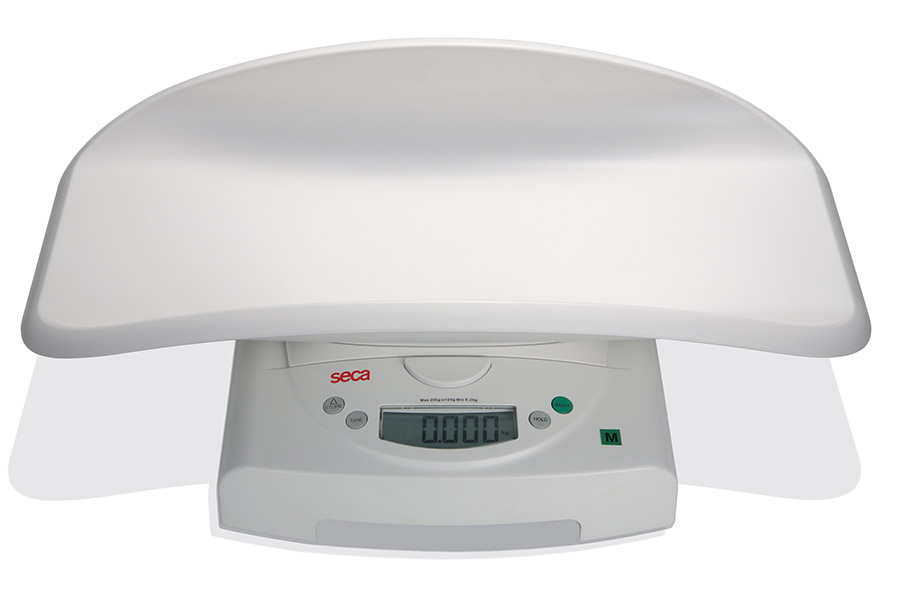
Self-weighing does not replace or affect any milestone or developmental checks that you will be offered.
Sites in Hounslow
Hanworth Library
Hanworth Air Park Leisure Centre and Library
Uxbridge Road
Hanworth
TW13 5EGOsterley Library
11 St Mary's Crescent
Isleworth
TW7 4NBOpening times:
- Monday and Thursday: 9.30am - 8pm
- Tuesday and Saturday: 9.30am - 5.30pm
Please note that the libraries are closed on Wednesday, Friday, and Sunday.
How to weigh your baby
- Before weighing your baby, you should wipe down the mat and scales using the antibacterial wipes provided.
- Before placing your baby on the changing mat, make sure there is clean blue roll on the mat and scales.
- Undress your baby.
- Press the green ‘START' button on the scales and wait for 0.000 to show on the display.
- Place your baby onto the tray, try to keep them as still as possible. For an accurate weigh check your baby isn’t holding onto anything that could impact the weight showing on the scales.
- Briefly press the ‘hold’ button and take a note of the weight shown.
- Turn to page 51 of the your baby's Red Book and record the date, your baby's age and weight.
- Once you have finished weighing and dressing your baby, please wipe all of the equipment again with an antibacterial wipe.
- Take any used nappies home for disposal.
There will also be a poster on display to guide you through weighing your baby.
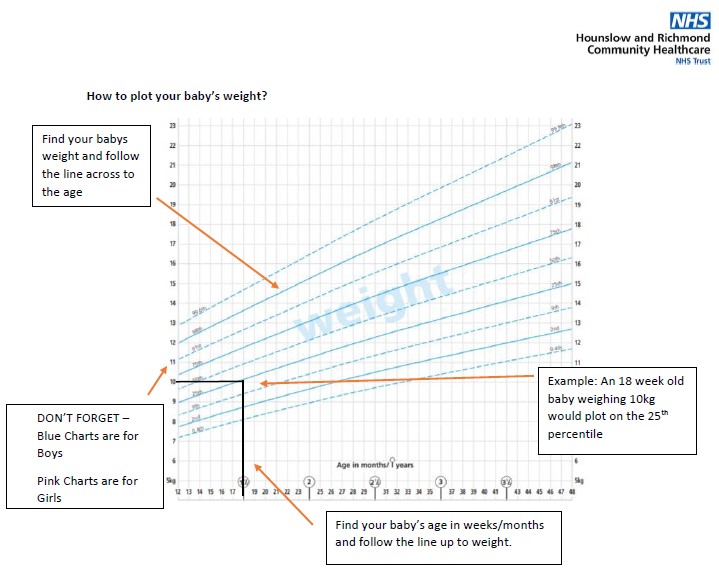
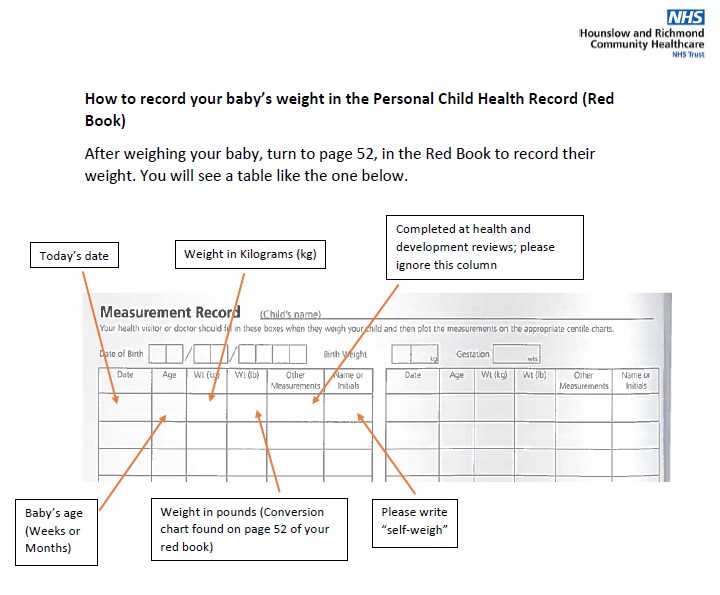
It is normal for a baby to lose some weight in the first few days after birth. Your baby should be weighed in the first week as part of their assessment of feeding – this is often completed as part of your midwife contact.
Most babies get back to their birth weight by 2 weeks of age. This is a sign that feeding is going well and that your baby is healthy.
If you baby's weight has increased or dropped crossing 2 centile lines (the blue or pink curved lines on the weight chart), please contact Hounslow Health Visiting Service and they can review your this with you.
Weighing your baby too often may cause unnecessary concern; the list below shows how often, as a maximum, babies should be weighed to monitor their growth. However, most children will not need to be weighed as often as this.
After your baby has returned to their birth weight and is feeding well they do not need to be weighed as often. This is usually by the time they are 2 weeks old, but your health visitor will advise you.
Unless there is a medical reason and you have been advised to have more regular growth checks it is not always a good idea. It can cause unnecessary worry as weighing a lot can make it seem like your baby’s weight is going up and down. Weighing less often means you see a clearer longer term picture.
Weighing less often doesn’t mean you can’t be confident that your baby is thriving. There are other ways to know that your baby is getting the nutrition they need. You can be reassured when;
-
- They wake up and ‘ask’ for a feed.
- They are having plenty of wet and dirty nappies.
- They have times when they are content and alert (awake and looking around).
- Their skin is a normal colour for them.
- You can ‘feel’ them getting heavier and friends and family comment on them getting bigger.
- They are growing out of nappy sizes and need bigger baby clothes!
- They are reaching milestones and interested in the world around them.
If you do feel worried that your baby is not gaining enough weight or might be gaining too much weight, you can call Hounslow Health Visiting Service on 020 8973 3490, open 9am-5pm, Monday to Friday to talk it through with a health professional.

